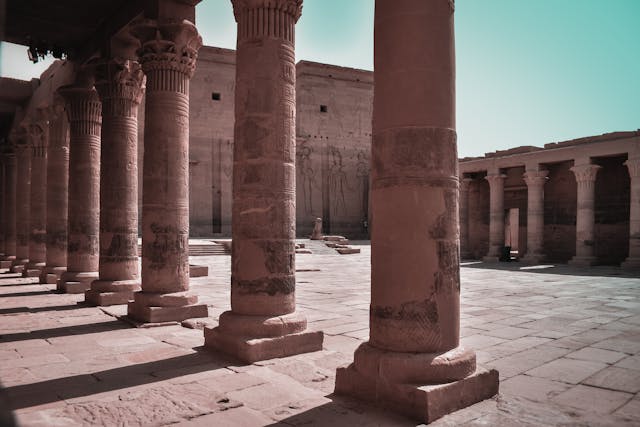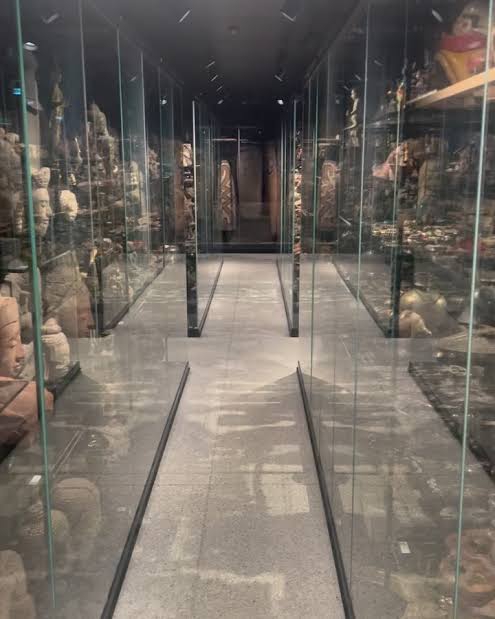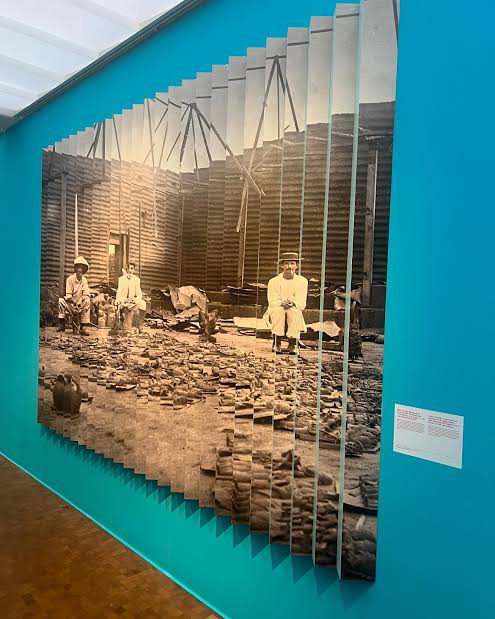


Echoes of the Past: Slave History Museum, Calabar
History African@africanhistory
5 months ago
Things You Should Know About the Slave History Museum, Calabar
The Slave History Museum in Calabar, located in Cross River State, Nigeria, stands as a solemn reminder of one of the darkest chapters in human history—the transatlantic slave trade. Situated in the historic Old Calabar area, this museum is not just a tourist attraction but a place of reflection, education, and healing. Here's why the Slave History Museum is so important:
Calabar played a central role in the transatlantic slave trade. As a major slave trade port in the 18th and 19th centuries, the region saw thousands of enslaved Africans pass through on their way to the Americas. Today, the Slave History Museum serves as a powerful tribute to the millions of Africans who were forcibly taken from their homeland. Through its exhibits, the museum documents the brutal journey of the enslaved, from capture to the harrowing Middle Passage, and the lives of those who were sold into slavery.
One of the key features of the museum is its focus on Old Calabar, which was once an administrative center for the British colonial government and a focal point of the transatlantic slave trade. Visitors can learn about the region’s historical significance, as well as explore the Old Calabar Slave Fort (also known as *Duke Town), which was used to house enslaved Africans before they were shipped across the Atlantic. The museum’s exhibits are rich with photographs, documents, and tools from this period, allowing visitors to visualize the daily horrors faced by the enslaved.
The museum offers an immersive experience with displays that cover the full scope of the transatlantic slave trade. Through personal stories, artifacts, and historical accounts, it highlights the inhumane practices that defined the trade. The museum emphasizes the humanity of those who were enslaved, giving a voice to their suffering and survival. Visitors can see how the lives of Africans were shattered by the transatlantic trade but also learn about their resilience and enduring spirit.
Another critical theme of the museum is the lasting legacy of the slave trade. While the museum focuses on historical events, it also brings to light the continued impact of slavery on the African diaspora. The effects of the trade—racism, displacement, and cultural loss—are still felt today, and the museum encourages reflection on these enduring issues. It opens up a space for dialogue on contemporary topics such as reparations, racial equality, and social justice.
The Slave History Museum is also an important educational resource. For scholars, students, and anyone interested in understanding the history of the African diaspora, it offers invaluable insights into how the transatlantic slave trade shaped global history. The museum is committed to educating future generations about the horrors of slavery, ensuring that the mistakes of the past are never forgotten.
In addition to the history of the slave trade, the museum also highlights the Efik people and their cultural heritage. The Efik, who lived in the Calabar region, were heavily involved in the trade, and their story is woven throughout the museum’s exhibits. Through its portrayal of Efik customs, history, and contributions, the museum creates a more complete picture of the region's past.
The museum is not only a site for learning about history, but also a place for reflection and healing. It serves as a reminder of the atrocities of the past while promoting a message of resilience and hope. By acknowledging the trauma caused by the transatlantic slave trade, the Slave History Museum encourages reconciliation and fosters a sense of unity among visitors from all backgrounds.
For those interested in the global implications of the slave trade, the museum offers an opportunity to engage in conversations about the African diaspora and its enduring cultural contributions. It highlights how enslaved Africans shaped the cultures, economies, and societies of the Americas, and how their descendants continue to influence global culture today.
The Slave History Museum is a place of healing, but it is also a space for remembrance and awareness. Visitors leave with a deeper understanding of the human cost of slavery and a renewed commitment to human rights, equality, and justice. By preserving this important part of history, the museum ensures that future generations understand the value of freedom and the importance of never repeating the injustices of the past.
If you're ever in Calabar, visiting this museum is not only an educational experience but also an emotional journey—a chance to reflect on the resilience of the human spirit and the long road to healing from one of history’s greatest atrocities.
#SlaveHistoryMuseum #Calabar #NigeriaHistory #SlaveTradeLegacy #AfricanHeritage #RememberingHistory #HumanRights
Photo credit: Myguide Ng
